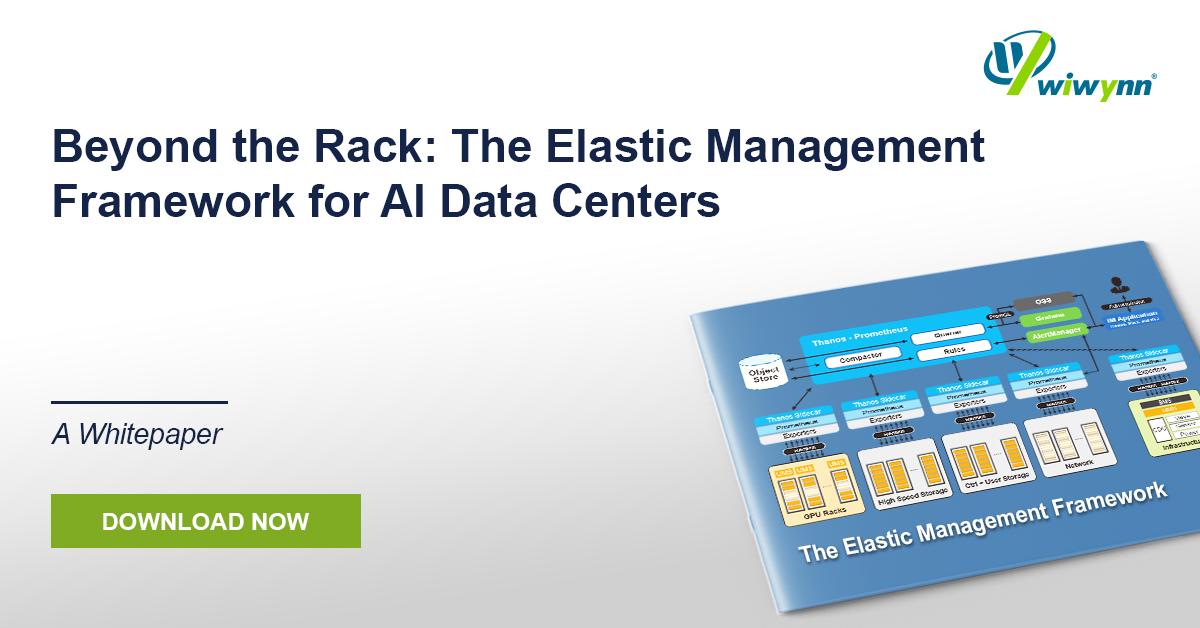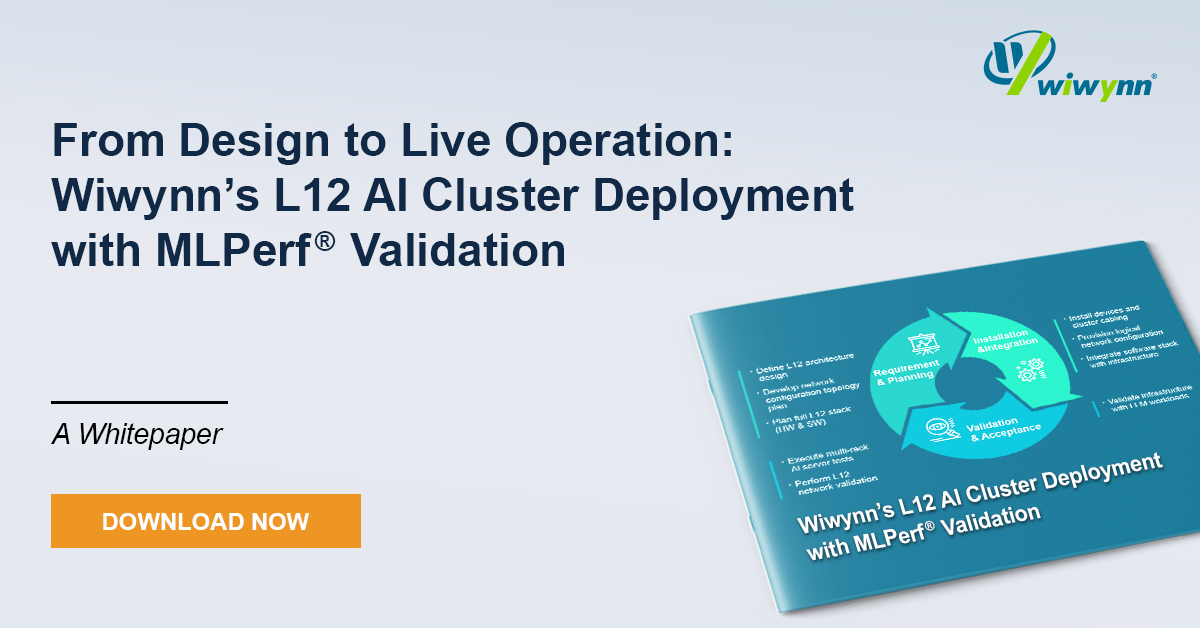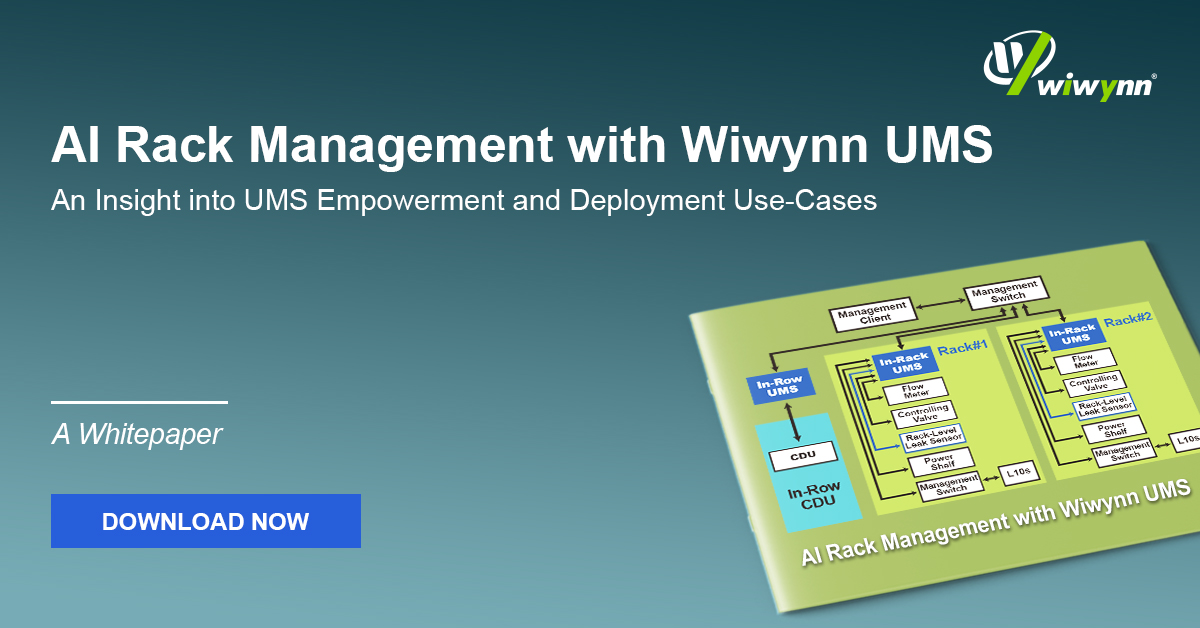2 min read
Autonomous AI Agent for End-to-End Component Data Extraction
1. Objective Streamline: complex, error-prone manual data entry Reallocate: engineering talent to high-value innovation Automation: Achieve...
1 min read
Press
Updated on October 15, 2025

AI clusters using next-generation accelerators (e.g., NVIDIA GB200) push rack power density beyond 130 kW, making air cooling insufficient and driving adoption of direct liquid cooling (DLC). This whitepaper introduces Wiwynn’s Elastic Management Framework, a modular, scalable, interoperable architecture that unifies rack- and cluster-level monitoring and control across IT and facilities. The Wiwynn Universal Management System (UMS) enables autonomous rack-level protection and in-row CDU coordination, integrates heterogeneous sensors and controls via Redfish/Modbus/SNMP/analog/GPIO, and exports normalized telemetry to a Prometheus/Thanos platform with Grafana visualization and AlertManager response.
This paper first explains the Elastic Management Framework. It then details a production deployment showing faster leak isolation, safer power sequencing, and telemetry scaling to hundreds of endpoints. It presents lessons on IT/OT protocol standardization, modular rollout from rack to POD to data center, and joint IT–OT design for networking, security, data synchronization, and leak workflows to guide reliable, scalable operations.
Explore how Wiwynn’s Elastic Management Framework empowers AI data centers to achieve seamless orchestration from rack to facility. Download the full white paper to uncover strategies for managing high-density GPU clusters with advanced liquid cooling and intelligent infrastructure control.

2 min read
1. Objective Streamline: complex, error-prone manual data entry Reallocate: engineering talent to high-value innovation Automation: Achieve...

1 min read
Deploying large-scale AI clusters introduces engineering challenges that extend well beyond the individual server rack. From liquid cooling...

1 min read
This paper discusses the rapid expansion of AI workloads and the resulting transformation in data center infrastructure requirements. Traditional...